The Spectacular Medicinal Benefits of Herbal Teas You'll Love
TEATIME NOTES
Find tips, recipes, and articles to increase your delight and enjoyment of tea.
The Spectacular Medicinal Benefits of Herbal Teas You'll Love
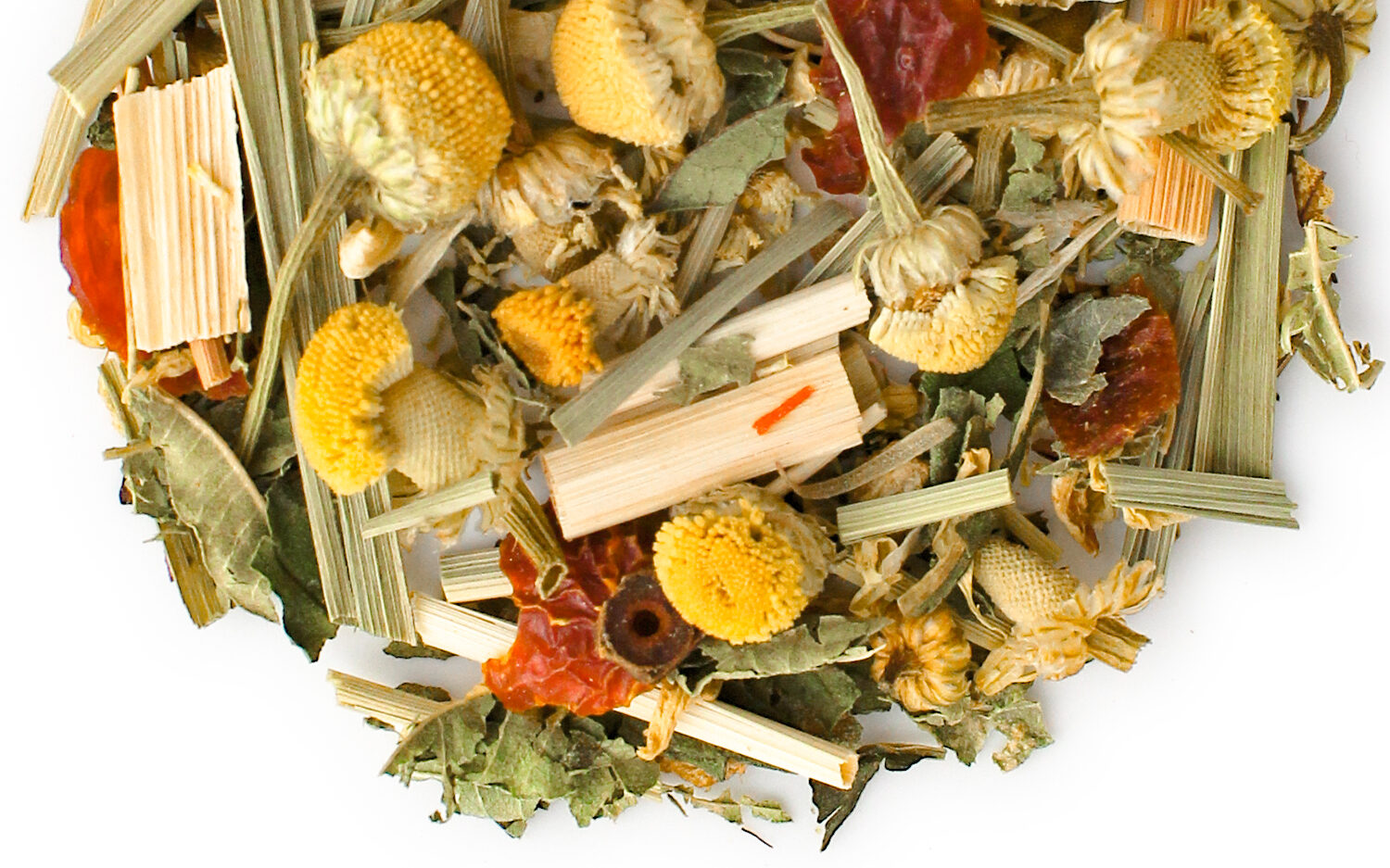
The Spectacular Medicinal Benefits of Herbal Teas You'll Love
The Truth About Herbal Teas and What They're Made From
By Erika Robertson
Herbal teas are making a comeback according to the American Botanical Council, and it’s not a surprise. More and more people are seeking out healthier ways to consume caffeine without dousing themselves in cups of coffee. In your exploration of teas, you have also dabbled in the world of herbal teas. These scrumptious blends can range from flowery to fruity, and spicy to minty.
What Is an Herbal Tea? What Is a Tisane?
Herbal teas can be made from leaves, flowers, fruits, herbs, and other botanicals. They are a blend of herbal elements and are commonly referred to as herbal blends. They can also be called a tisane.
Herbal teas are not exactly tea. By definition, for a tea to be an official tea, it has to come from the Camellia sinensis plant. This one incredible plant is the starting point for every kind of black, green, white, and oolong tea. Herbal tea blends aren’t made with tea leaves. Herbal teas and tisanes are made with herbs, plants, and other botanical ingredients.
They were created and consumed long before real tea was ever invented. The earliest verbal historical accounts of tisanes and herbal teas come from the home where tea was invented — in China. These records go back to 2737 BC. The written record of herbal tea dates as far back as the third century. Herbal teas have a rich history across the globe and have been used as medicines in Egypt, China, Sri Lanka, Greece, and beyond.
Is Herbal Tea Healthy?
Botanicals, herbs, spices, and roots have been used as medicines for thousands of years. Plants and earth-grown elements have a plethora of health benefits. Herbal teas that are made with these ingredients also have health benefits.
Tisanes and herbal teas are still used abundantly today within holistic medicinal practices and used for at-home remedies to ailments. A warm cup of ginger and turmeric tea with a splash of black pepper can reduce inflammation and increase energy. Mint infused teas paired with honey and lemon are commonly used to ease symptoms of colds and allergies.
There are incredible health benefits to consuming different kinds of fruits, herbs, spices, and botanicals. Studies show that the way you prepare botanicals can also enhance the consumption of different kinds of vitamins and minerals that can be beneficial for your health.
How Much Caffeine Is Actually in Herbal Tea?
Most herbal teas are traditionally caffeine-free. Flowers, herbs, fruit, and spices don’t contain caffeine and because these tisanes are made from botanical ingredients the warm teas are also caffeine-free. But there are now some herbal teas that are shaking up the caffeine-free tea narrative.
Yerba Mate is a South American tea made with leaves and twigs from the Ilex paraguariensis plant which has caffeine. Ilex grayusa is a caffeine-rich plant that’s native to the Amazon Rainforest and it’s used to make grayusa herbal tea. Guarana is also native to the Amazon and is used to create a caffeine-infused herbal tea.
8 of the Most Popular Ingredients in Herbal Teas
- Chamomile
Chamomile might come to the forefront of your mind when you think of herbal teas. Chamomile is known for its sleep-inducing qualities. If you want to relax a little before bed, chamomile tea is a wonderful natural solution. It is also packed with other health benefits. It can help slow and prevent osteoporosis, reduce stomach pains, help with cancer treatment side effects, and even help lower blood sugar levels.
- Mint
Mint is a not-so-distant cousin of chamomile when it comes to herbal tea blends. When you think of medicine and relief, you might think that a cup of mint tea is just the answer. Hot mint tea fumes can help open up sinuses that are inflamed from allergies and sickness. Like chamomile, mint may help with sleep and upset stomachs, and cramping. As much as mint can be relaxing, for some people, it can also be an energy booster.
- Rooibos
Rooibos is a special kind of tea that is grown from the red bush tea plant in South Africa. It has high levels of antioxidants — like quercetin and aspalathin. It is a naturally caffeine-free herbal tea that can help with diabetes, weight management, and heart health.
- Ginger
Ginger has been used in medicine for many thousands of years. It relieves inflammation and can help with nausea and sickness. Ginger is regularly used in motion sickness and stomach-soothing medicines and supplements. Drop a teaspoon of freshly ground ginger into your herbal tea to add an extra spicy kick to your hot beverage.
- Turmeric
Turmeric is a root, just like ginger, that has tons of anti-inflammatory benefits. It is loaded with antioxidants and is frequently used to help with gastrointestinal and stomach problems. It is used heavily in different kinds of cuisines and, when paired with black pepper, turmeric’s health benefits are even believed to help with cancer treatments.
- Lemongrass
Lemongrass can reduce swelling and relieve pain. There are some people that say that it might help prevent the growth of some kinds of yeast and bacteria. Lemongrass is also used to treat upset stomachs and is rich in antioxidants.
- Hibiscus
Hibiscus creates a beautiful ruby red broth in many herbal teas and has a zingy kick. Not only does hibiscus help fight inflammation, but it can also support liver health. Hibiscus may help lower blood pressure. It is also very rich in vitamin C and beta-carotene antioxidants.
- Lemon and Citrus
Citrus and lemon herbal teas help give a little boost to your immune system. Lemon is an anti-inflammatory and lemon might even fight the aging process. It is associated with cancer-preventing medicines and can be helpful in balancing mental health and wellness. Citrus and lemon might also help fight off bacteria.
Explore the Most Delicious Herbal Tea Blends
The tea industry is trying to clean up its act, but there is one tea store that is taking its passion for health to the next level. Teabloom is on a mission to provide you with the best teaware and teas that promote clean tea consumption and longevity.
Teabloom’s loose-leaf herbal teas are USDA Certified Organic, certified Kosher, and they are made with the best natural ingredients. And, their incredible pyramid tea sachets are 100% compostable — they are much better than biodegradable. These tea bags are made with whole leaf teas — not tea dust — which means you can enjoy your high-quality organic tea leaves without the loss of flavor and all in the convenience of an earth-friendly bag.
Borosilicate glass teaware is the wave of the new tea-drinking future. Most people don't know that metallic and porcelain teaware releases toxic chemicals into their tea. Teabloom wants to change the way you drink tea and improve your health in the long run. Borosilicate glass teaware is strong, easy to clean, and it makes your tea taste pure and vibrant — as if you’ve never experienced it before.
Teabloom is your new healthy home for all things tea. Explore every loose leaf tea blend and teapot and trinket that Teabloom has to offer.

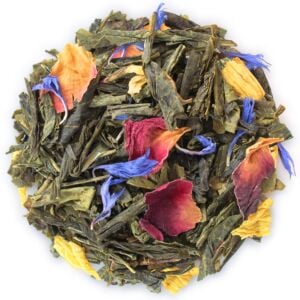
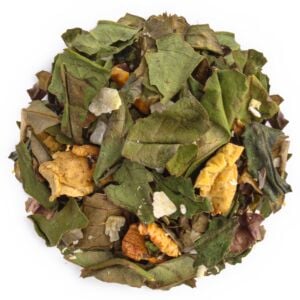
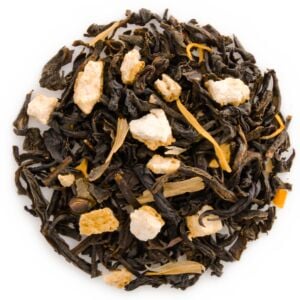
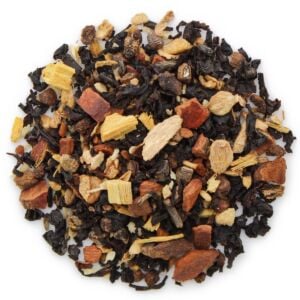
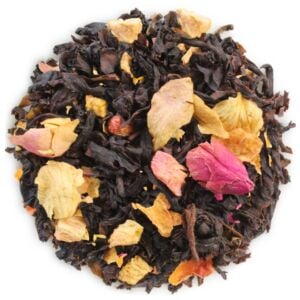
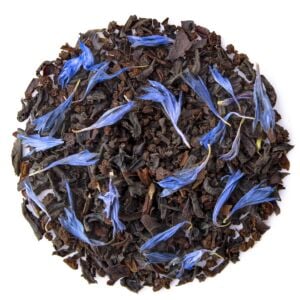
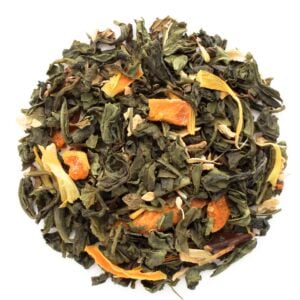
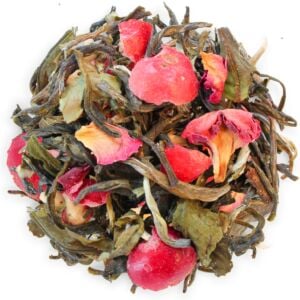
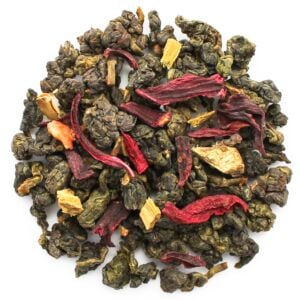
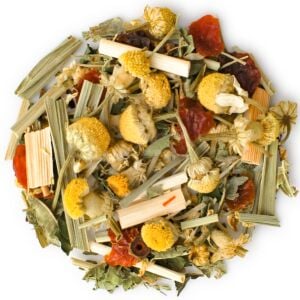
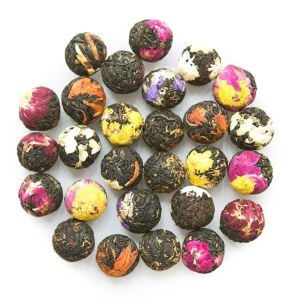

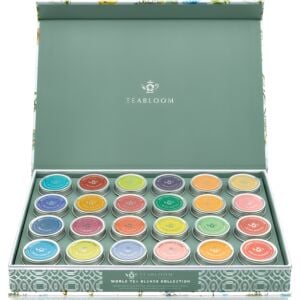
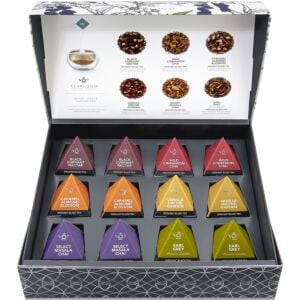
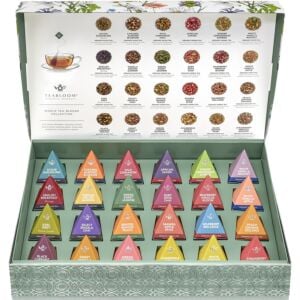
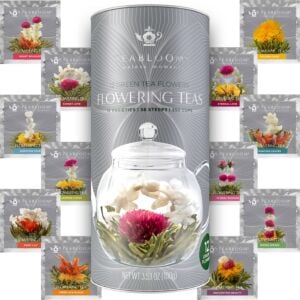
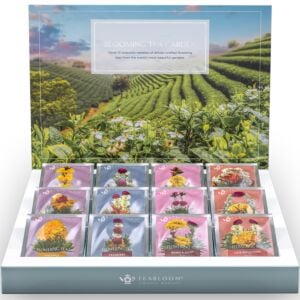
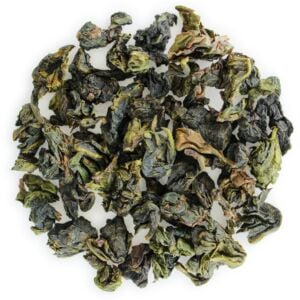
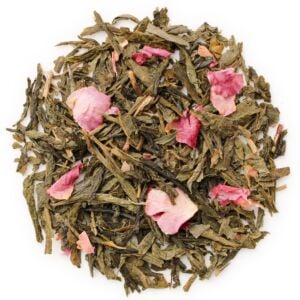
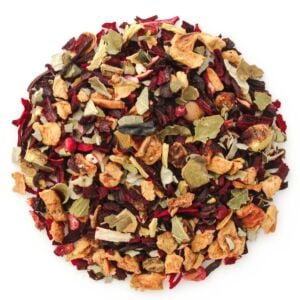
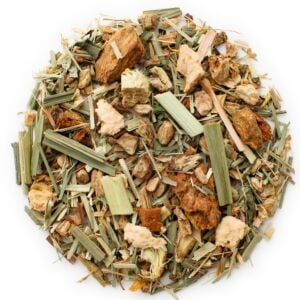
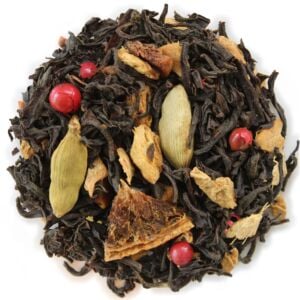
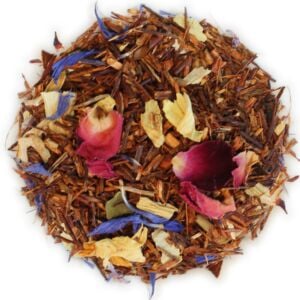
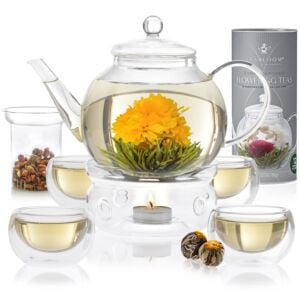
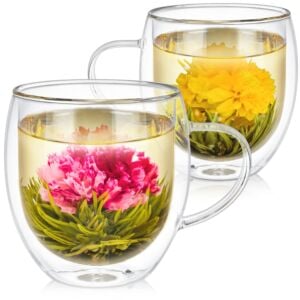
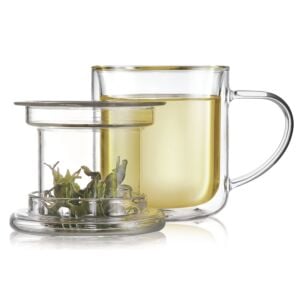
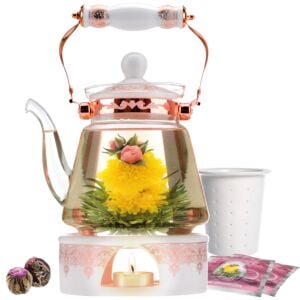
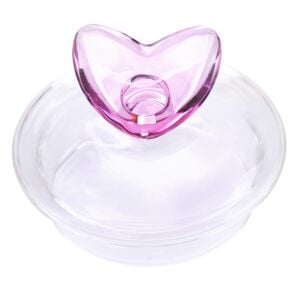
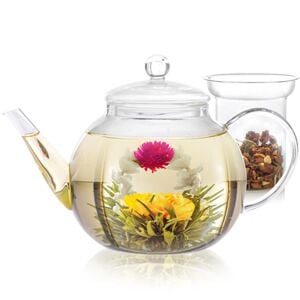
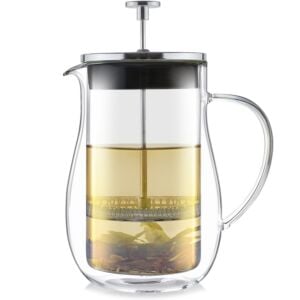
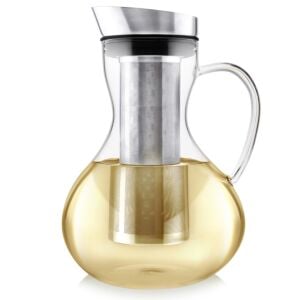
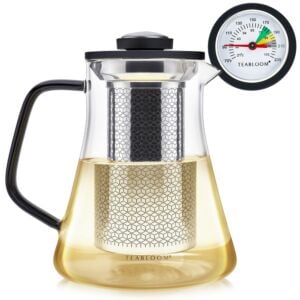
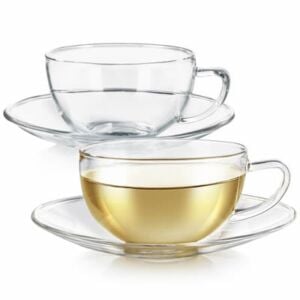
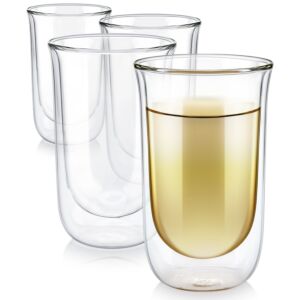
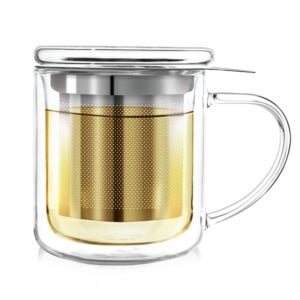
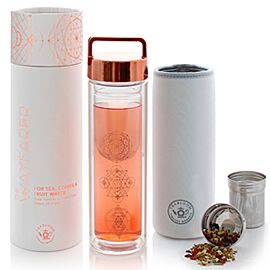

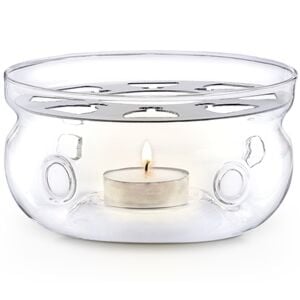
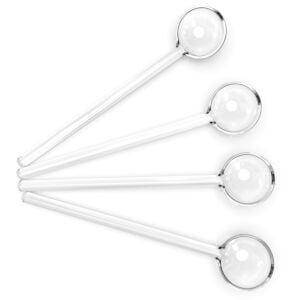
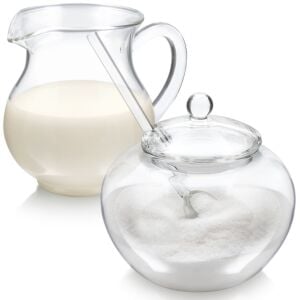
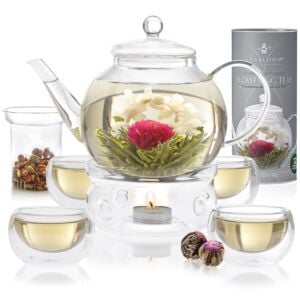
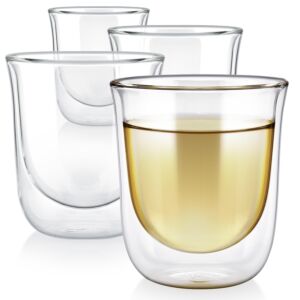
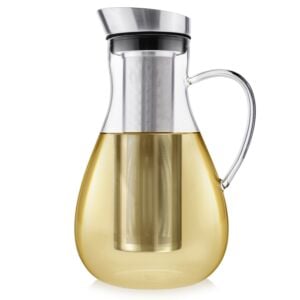
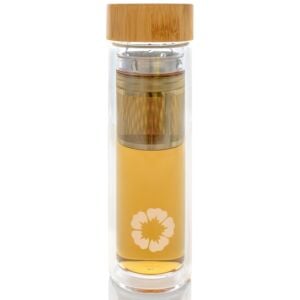
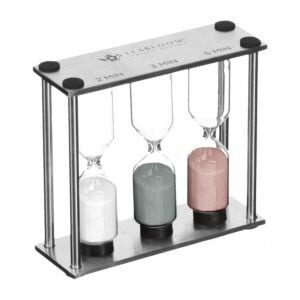
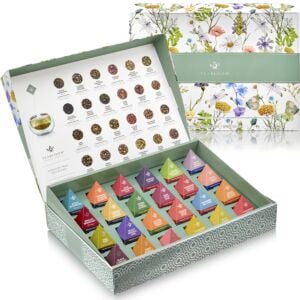
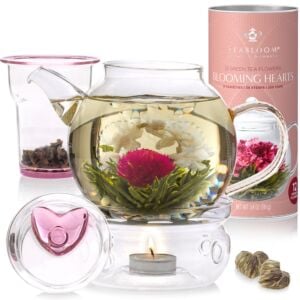
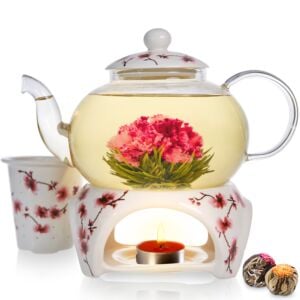
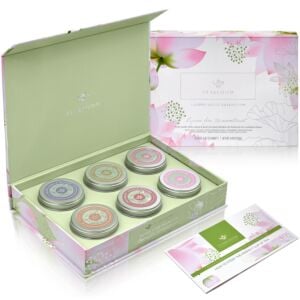
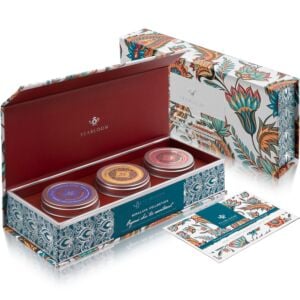
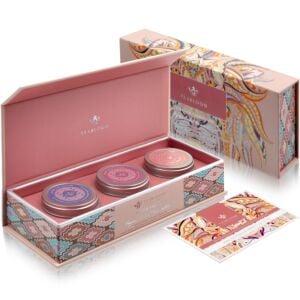
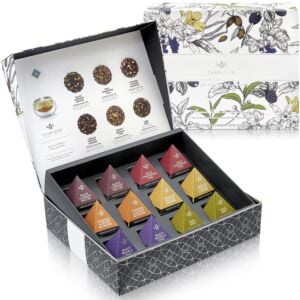
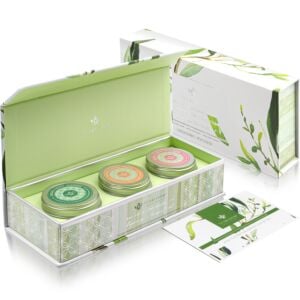
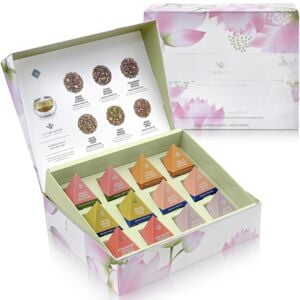
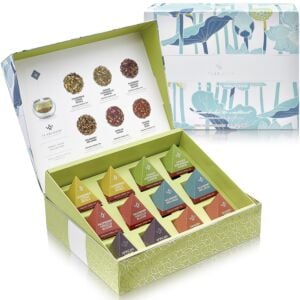
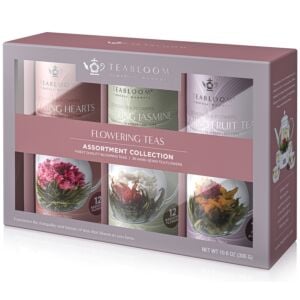
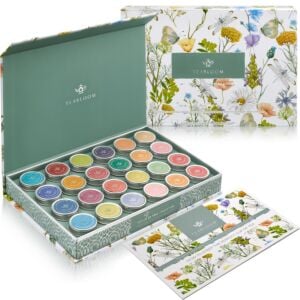
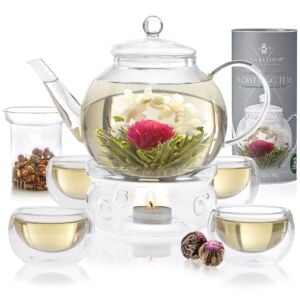
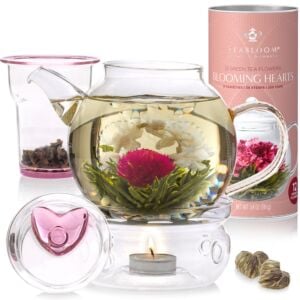
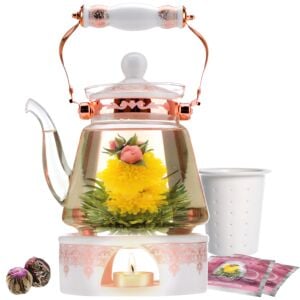
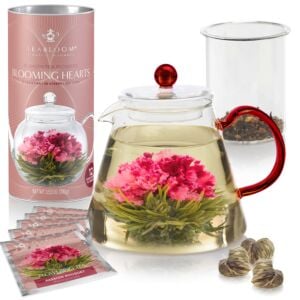
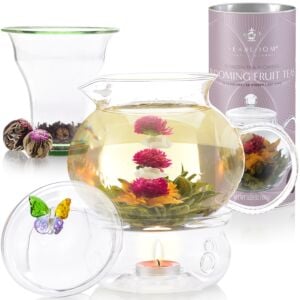
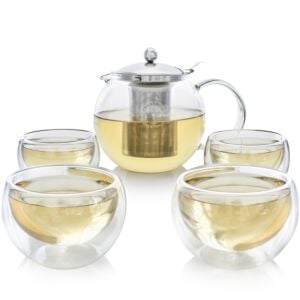
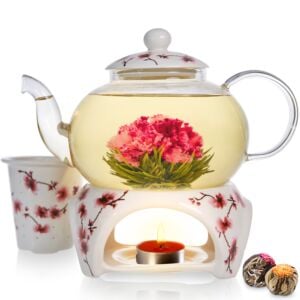
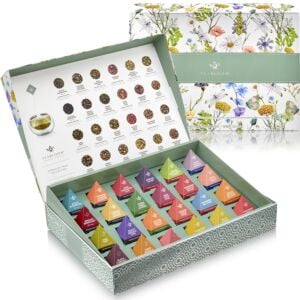
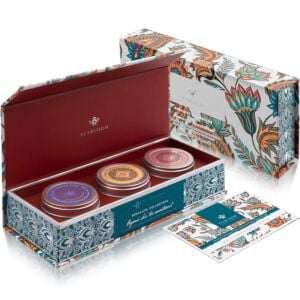
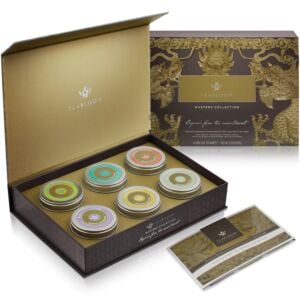
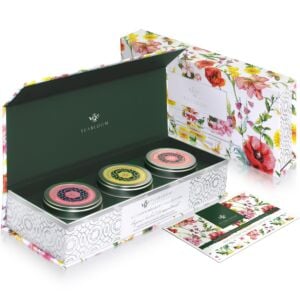
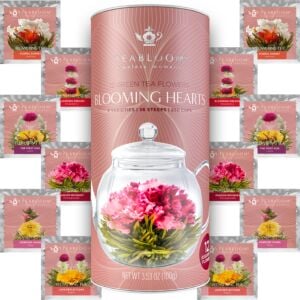
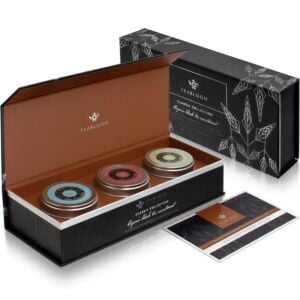
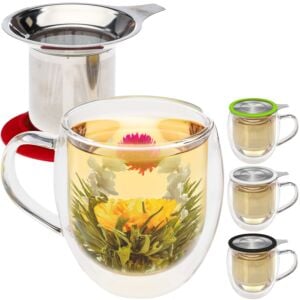
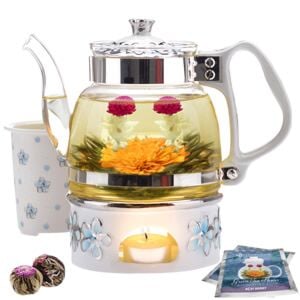
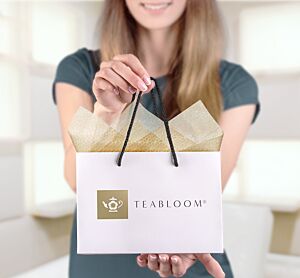
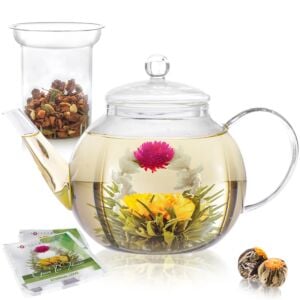
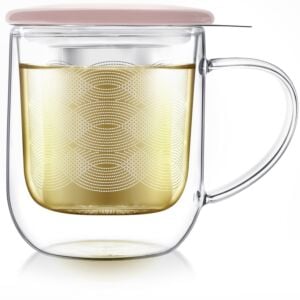
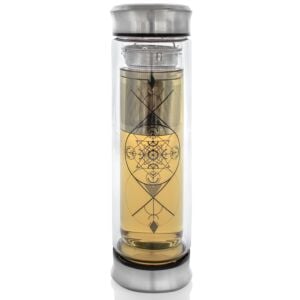
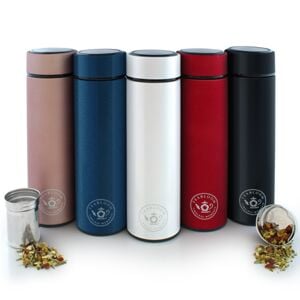
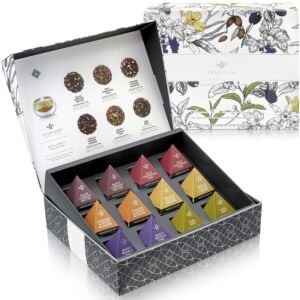
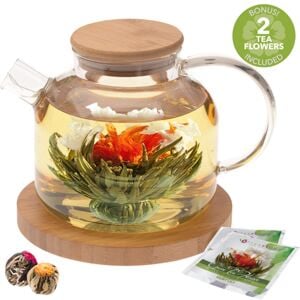
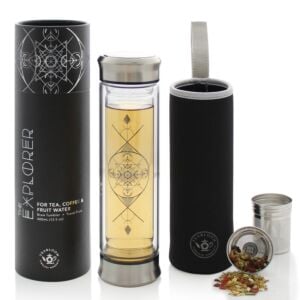
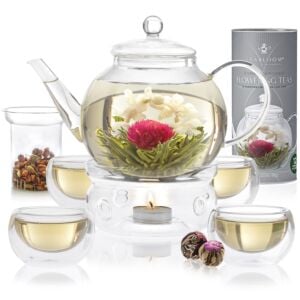
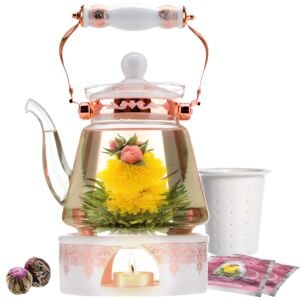
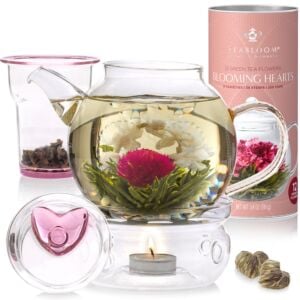
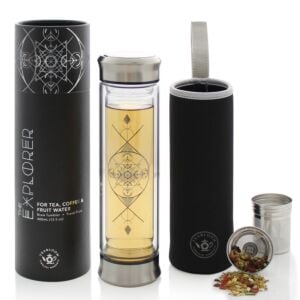
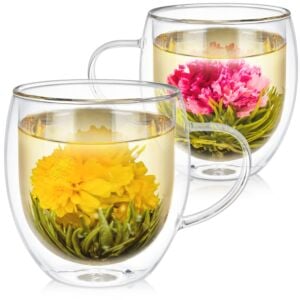
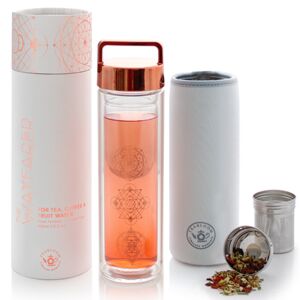
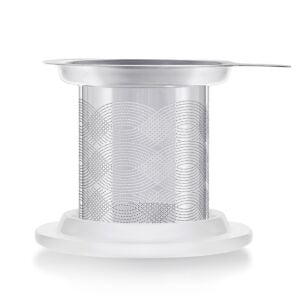
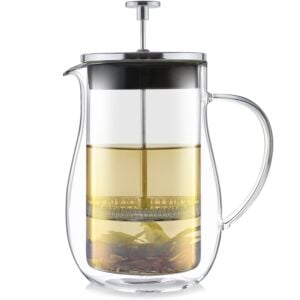
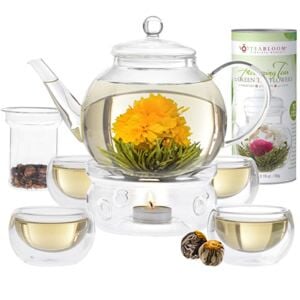
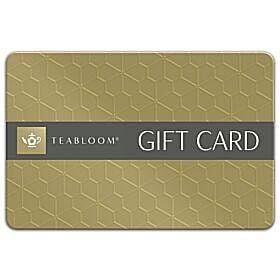
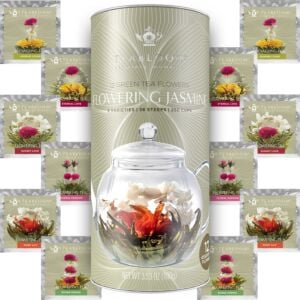
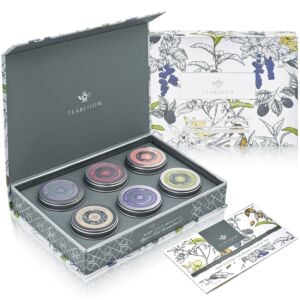
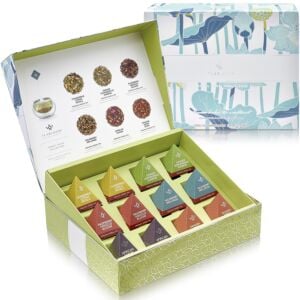
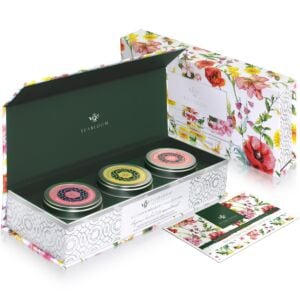
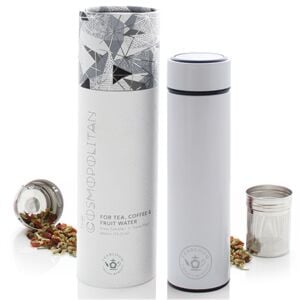

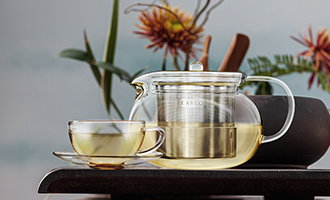
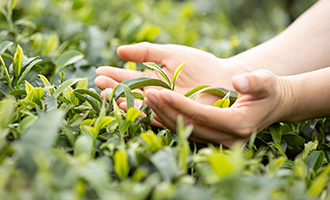
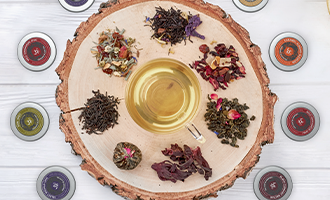
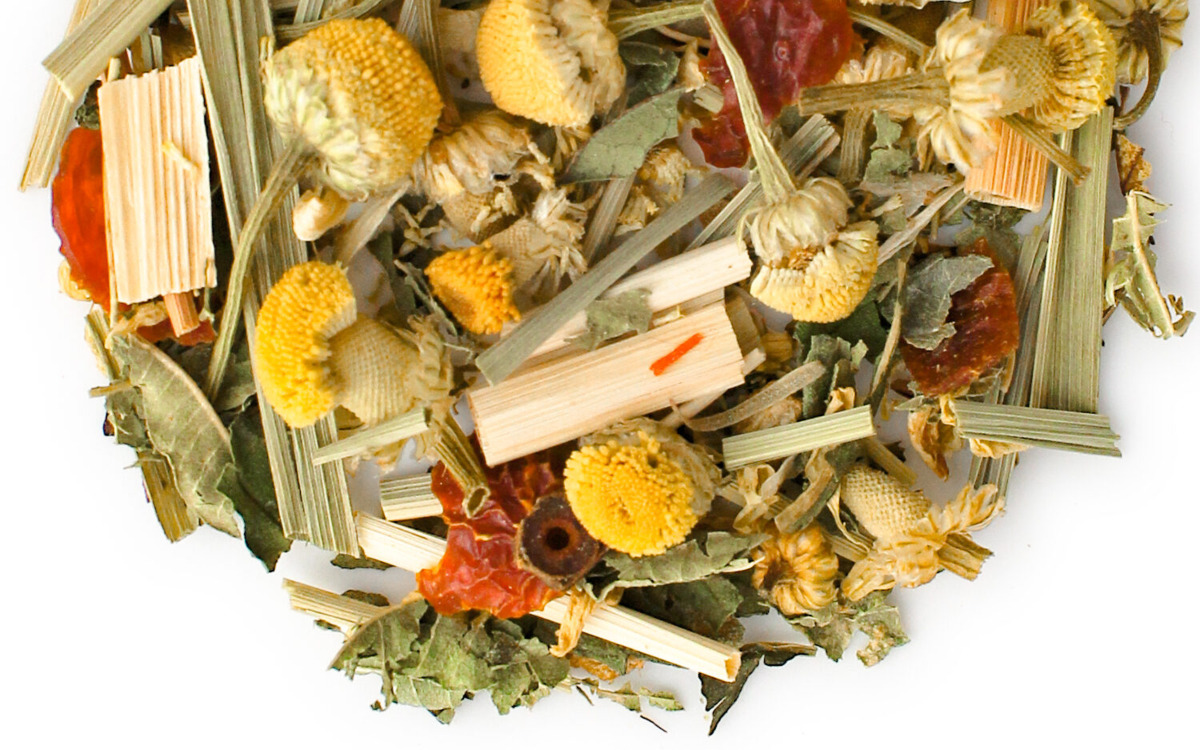
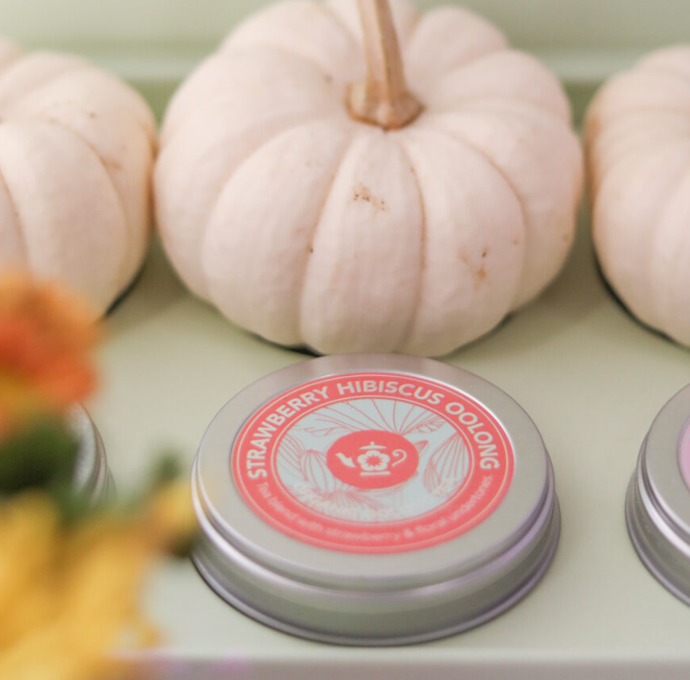
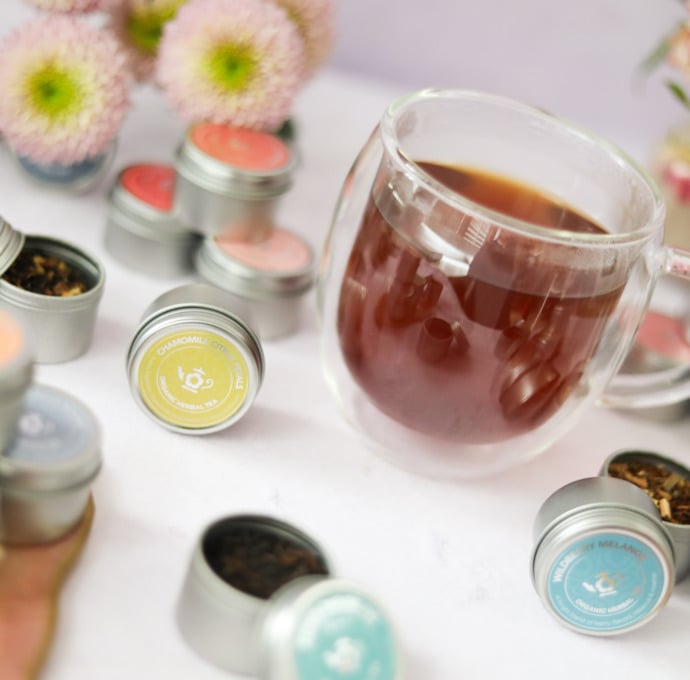
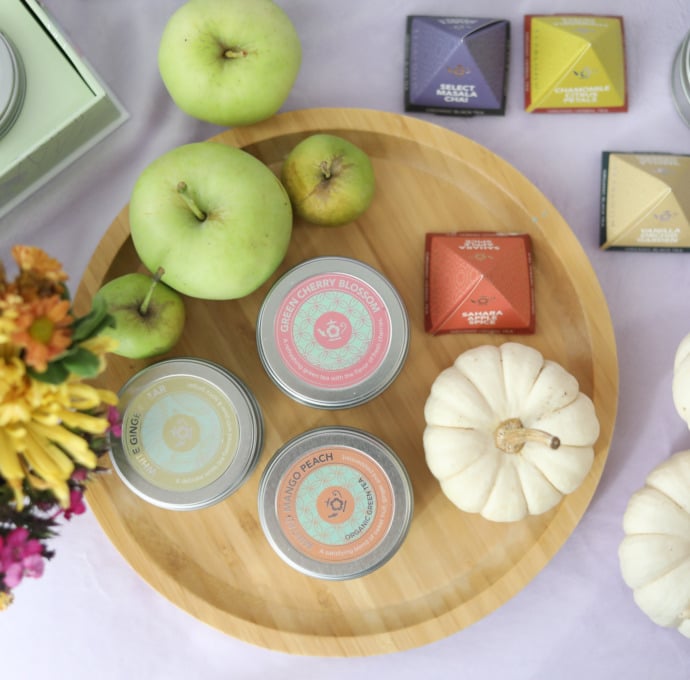
Share your thoughts